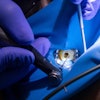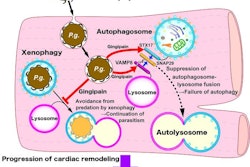This Valentine's Day, protecting your heart might start with your smile. Studies suggest that maintaining good oral hygiene may lower certain cardiovascular risks, including an increase in strokes and thrombosis, and improve heart rhythm stability.
The following are ways your oral health can keep your heart strong.
Increased stroke risk may be linked to common mouth germ
A preliminary study suggests that Streptococcus anginosus, a common mouth and gut bacterium, may be more abundant in stroke patients' intestines and is linked to a higher stroke risk. Conversely, Anaerostipes hadrus and Bacteroides plebeius were associated with reduced stroke risk. Stroke survivors with Streptococcus anginosus also had a higher risk of death and major cardiovascular events over two years, while no such risks were observed for the other bacteria.
Flossing may cut the risk of stroke, irregular heartbeats
Regular flossing may significantly reduce the risk of stroke and irregular heartbeats, independent of other dental hygiene habits, according to a preliminary study. Also, it was linked to a lower risk of ischemic stroke, cardioembolic stroke, and atrial fibrillation. More frequent flossing also correlated with fewer cavities, lower periodontal disease risk, and greater stroke prevention benefits.
Periodontitis may be linked to thrombotic diseases
A review published in the International Journal of Oral Science suggests that periodontitis may contribute to thrombosis by promoting bacterial transmission, systemic inflammation, and coagulation changes. Despite this link, current clinical guidelines for thrombotic diseases do not include oral health management, though regular periodontal monitoring may benefit at-risk individuals. As treatment for thrombosis evolves, integrating periodontal therapy could improve outcomes and offer new therapeutic options.
Controlling this heart condition may rely on gum disease treatment
Better control of periodontitis may help patients with atrial fibrillation maintain normal heart rhythms after catheter ablation, according to a study published in the Journal of the American Heart Association. Furthermore, those who treated their gum disease were less likely to experience a recurrence of irregular heartbeats.




















